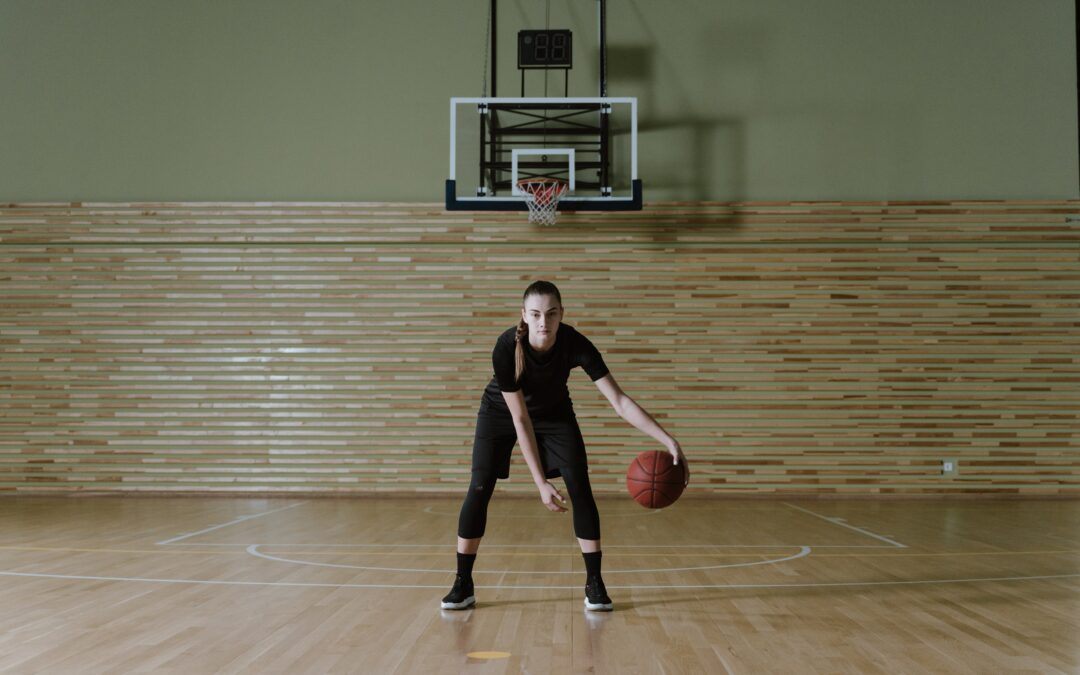Summer remains a pivotal part of the basketball season for more than just the coaches looking to make the most of the offseason. It’s during spring and summer where developing players can sharpen their basketball skills ahead of tryouts in the fall and the winter’s regular season.
Players can use the five P’s to help them maximize their basketball offseason training. Prep, Practice, Push, Partner, and Pace provide plenty of purposes for players to pursue. It’s never too early to start training for your next basketball season. Here’s a look at those five P’s to get you off your gaming chair on the court.
Prep For Your Offseason Training
Just like coaches, players need to prepare for their offseason training. You’ll want to ensure a plan of attack when entering the gym for any workout session. To do this, each player should prep and plan their approach. What skills do you want to develop? What drills can you incorporate?
Offseason prep provides valuable time to consider your goals. Knowing what you’d like to achieve ahead of time will help you maximize your time in the gym. Customize your prep to fit your specific goals, beyond what offseason training goals your coaches may have set for the team. If you want to get stronger, build your workouts around the weight room. If you want to increase your shooting range, set your sights on shooting drills.
Practice Your Position During Offseason Training
While having a versatile skill set is always valuable, practicing your specific position during your offseason training provides the quickest route to playing time. If you spend your individual workout time on shots you won’t or will rarely see during a game, you’re sabotaging your offseason training. The different positions on a basketball team trend to create different scoring opportunities on the floor.
Ball-handlers should practice scoring off ball screens, penetration, and catch-and-shoot opportunities. Wing players could build their workouts around coming off ball screens, catch-and-shoot/drives, and scoring from a triple-threat position. Post players can work on scoring down low, their face-up/mid-range game, and offensive rebound finishes.
Of course, there’s more to each position than just these drills, but focusing on specific skill development will help maximize your offseason training. Working solely on isolation touches or three-point shooting limits the effectiveness of your time in the gym.
Push Yourself During Offseason Training
One key to maximizing your offseason training time is keeping a close eye on your pace. While it’s okay to start slowly, your workouts should eventually build to practice your moves at game speed. Not only does this help develop your game-specific skills, it also adds a layer of conditioning to your training program.
In addition, playing with pace adds value to your training by building muscle memory. There’s a reason why it’s called “game speed.” Practices tend to run slower, especially during specific drill work. Pushing yourself to practice at game speed only helps your confidence grow as a player.
Partner Up
Practicing alone limits what you can do. So, finding a partner opens the door wider to maximizing your offseason training. You and your partner can work on a variety of skills and drills that solo workouts can’t incorporate. This is particularly true when trying to complete shooting drills. Having a rebounder and a passer can help improve the flow and efficiency of your workouts.
Adding a partner to your workout also provides a layer of accountability to what you’re trying to accomplish. You’ll probably face days where you lack the motivation to go to the gym. Having a partner in tow means you’re more likely to stick to the schedule you developed at the start of the offseason.
Pace Yourself in Offseason Training
Trying to do too much in too little a time will also sabotage your offseason training efforts. It’s important to pace yourself throughout the spring and summer so as to not suffer burnout. Staying consistent with your approach helps maximize the effectiveness of your workouts. Stick to the schedule you set at the start, and remember to consider whatever team practices and camps your coach may have in mind.
It’s important to work on multiple skills for your position, but also make time for strength training. Participating in offseason programs for other sports will also help with conditioning and avoiding basketball burnout. If you’re only working on basketball skills this offseason, set yourself up with a reasonable schedule to maximize your training efforts.
Related: 5 Keys Areas to Improve This Basketball Offseason
Resources:
Coach Unplugged Podcast
Ep: 601 Off-Season work ( Team, Player and Coach)
If you found this useful, don’t forget to check out additional blog posts at TeachHoops.com. Also, check out TeachHoops on Facebook, Twitter, Instagram and YouTube.



